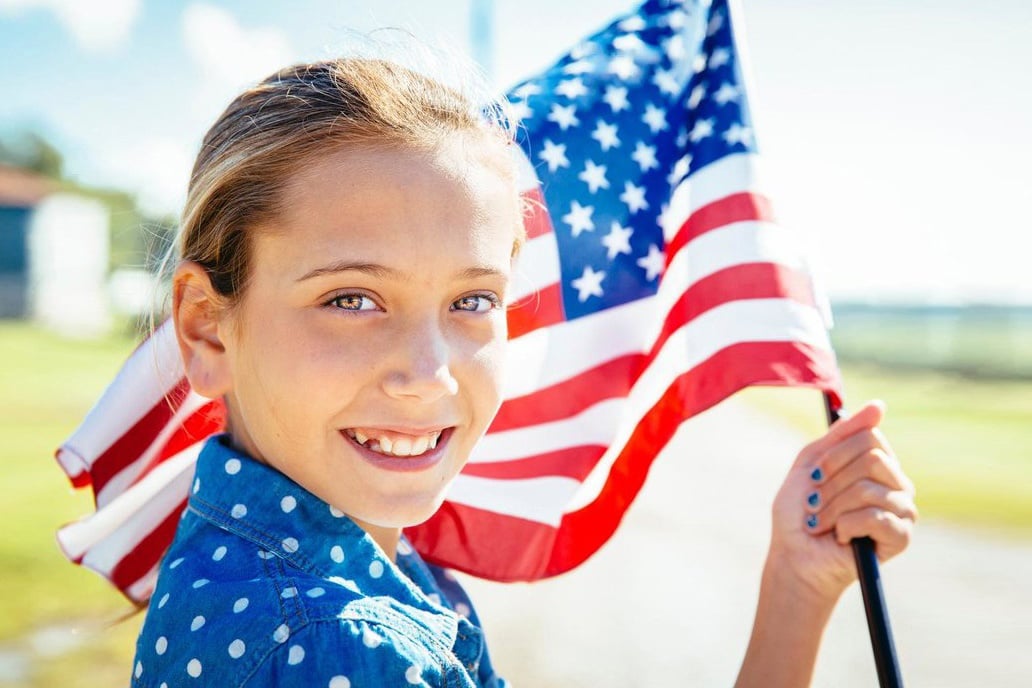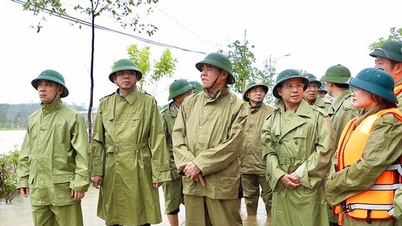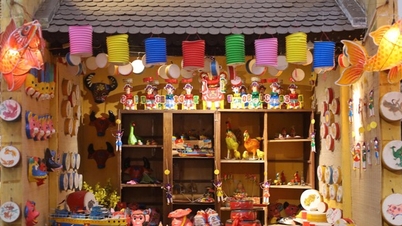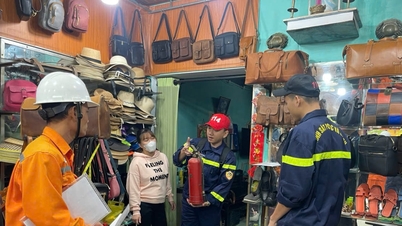Every person is born and raised in a certain cultural environment. When suddenly living for a long time in a different cultural environment, people will be stunned, suffer from “culture shock”.
 |
| Illustration photo. |
This phenomenon can be divided into four periods: first, the honeymoon period, about one or two months (people are excited to discover new scenes and new people); second, confusion, dizziness, shock (finding their behavior strange, silly, bad...); third, finding ways to adjust one's behavior (to suit them. Not understanding whether they are wrong or we are right, but trying to understand why they behave the way they do); fourth, integration (accepting their behavior (after 6-12 months).
In her book Culture Shock! USA (Graphic Arts Center Publishing Company - Portland, Oregon - 1991), Esther Wanning analyzed the characteristics of American culture that cause foreigners to be shocked when they come into contact with Americans. Below are some excerpts of American psychology.
I wonder how it is that at any train station in the world , anyone can immediately recognize an American? Although Americans have many roots, they do have an American style. Americans are reserved, some are brash, some are talkative, some are taciturn, but the American character is unmistakable.
Friendliness – Foreigners all agree that Americans are friendly and open. Very few Americans act arrogantly, although deep down they consider themselves superior to others. The US President often emphasizes that he is just like everyone else. It is normal for a university professor to go fishing with plumbers. Americans greet everyone with a friendly “Hi”! It is a demonstration of equality. When meeting a neighbor, they say “Hello”. Being friendly does not mean being friends; being friendly is simply a demonstration of democratic behavior. Some foreigners are too quick to call it friendship, and then come to the conclusion that friendship in America is superficial. The word “friend” actually refers to acquaintances in general. Real “friends” are as rare in America as anywhere else.
Emotions - Americans believe that there is no need to hide their emotions. Sometimes they express them a bit too much. For example, when meeting an acquaintance, they often say, "It's great to see you. You look fabulous. Let's have lunch soon." These feelings simply mean: it's really interesting to meet and talk to each other on this street corner. As for inviting each other to lunch, it's not necessarily a real invitation. When Americans say enthusiastically, "I like you," Asians may think they're talking too much. When they're happy, Americans smile brightly, gesture, or loudly declare, "This is marvelous, the best news I've ever heard." Unlike Asians, Americans only smile when they hear good news or are satisfied. Americans don't smile to hide embarrassment; it's often more difficult for them to express sadness.
Tactile communication – Americans generally avoid this except when hugging, kissing, holding hands, meeting or saying goodbye; adults usually only have tactile contact in sexual situations. There was a Russian man who, while being affectionate and intimate, put his hand on his American male friend's thigh, and the American jumped. Usually, two Americans do not hold hands intimately. Men may pat each other on the back, squeeze each other's hands, but avoid skin-to-skin contact that might suggest sex. While talking, always keep an arm's length apart unless quite intimate; people avoid breathing in the face of the person they are talking to.
Conversation – To add to their assertiveness, Americans tend to speak quite loudly, at least louder than Thais and Malaysians. People who don’t know them often think they’re angry. Americans are more accepting of anger than Asians, especially when it’s justified. Of course, it’s not a good idea to get angry to the point of losing control. When talking, you have to look straight into the other person’s eyes, otherwise it’s considered dishonest; although you have to look away after a few seconds to relieve the tension.
Etiquette – The United States is a young country without a long historical and social environment. Therefore, etiquette is not as important as in other countries. Excessive etiquette in the United States can be considered anti-democratic, especially class etiquette. Little attention to etiquette makes it easy to integrate the nation, and Americans are also more forgiving of foreigners for their awkwardness in etiquette. Only the American flag is sacred in community activities, but the law also protects the right to respect that flag.
Politeness – Foreigners find Americans to be polite, although not formal. This impression may be due to their use of the words “Thank you” and “Please,” or their respectful attitude toward foreigners. Americans are offended when they hear others speak harshly to waiters. To them, it is necessary to respect waiters or any waiter, and to treat them as you would a doctor or a senator. The assessment of American politeness also depends on the ethnicity: the Japanese consider Americans rude and discriminatory, while Americans behave at a normal level. Localities also vary: New Yorkers are known to be rude, but they are helpful. In general, Americans are more polite in public than at home…
Taboos - Do not hiccup, defecate, or spit, even in your own yard. Do not slurp gum, although the upper classes sometimes do. Do not glare at people you are not talking to. Cover your mouth when yawning, coughing, or sneezing; it is best to add “excuse me.” Do not whistle at women. Men must remove their hats when entering a home.
Source


![[Photo] National Assembly Chairman Tran Thanh Man chairs the 8th Conference of full-time National Assembly deputies](https://vphoto.vietnam.vn/thumb/1200x675/vietnam/resource/IMAGE/2025/9/29/2c21459bc38d44ffaacd679ab9a0477c)

![[Photo] Many streets in Hanoi were flooded due to the effects of storm Bualoi](https://vphoto.vietnam.vn/thumb/1200x675/vietnam/resource/IMAGE/2025/9/29/18b658aa0fa2495c927ade4bbe0096df)

![[Photo] General Secretary To Lam attends the ceremony to celebrate the 80th anniversary of the post and telecommunications sector and the 66th anniversary of the science and technology sector.](https://vphoto.vietnam.vn/thumb/1200x675/vietnam/resource/IMAGE/2025/9/29/8e86b39b8fe44121a2b14a031f4cef46)
![[Photo] General Secretary To Lam receives US Ambassador to Vietnam Marc Knapper](https://vphoto.vietnam.vn/thumb/1200x675/vietnam/resource/IMAGE/2025/9/29/c8fd0761aa184da7814aee57d87c49b3)






![Strolling in the American Literature Garden [Part 19]](https://vphoto.vietnam.vn/thumb/402x226/vietnam/resource/IMAGE/2025/1/19/282450858d7345568984c556f7bb952d)
![Strolling in the American Literature Garden [Part 17]](https://vphoto.vietnam.vn/thumb/402x226/vietnam/resource/IMAGE/2025/1/20/d66f4bb035b24a638d3710594d9d915f)





















































































Comment (0)